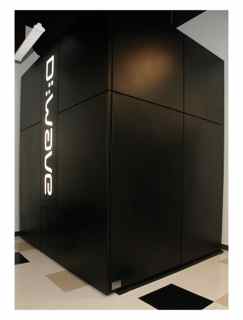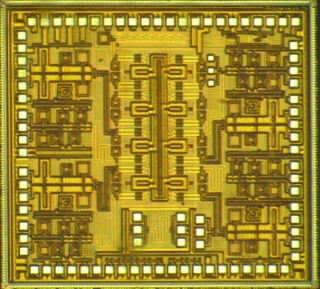Engineering Systems Beyond Moore's Law
The Science of Circuitry

USC's Quantum Computer
The complexity of operations performed in Integrated Circuits (IC) has grown exponentially following Gordon Moore’s seminal prediction on transistor scaling. In turn, this has led to widespread usage of extremely complex Integrated Systems embedded virtually in all man-made devices and systems. The introduction of new and complementary technologies to conventional CMOS transistors, coupled with advancements in high-performance computation, opens up new possibilities for realization of extremely complex integrated systems with unprecedented capabilities. The Viterbi School research in this area will address the following questions:

A Complex CMOS Integrated Circuit
How to enable reconfigurable, agile, modular, and heterogeneous integration of new materials, devices, and ultimately, complex integrated systems? This includes augmenting the conventional top-down design approaches with bottom-up methods enabling innovation and creativity through the hierarchy from materials and devices to complex integrated systems.
How to develop design tools, predictive models, computer architectures, and experimental infrastructure for complex integrated systems that are based on new materials, devices, processes, and technologies? USC’s major supercomputer cluster and the newly acquired D-Wave quantum computer will serve as enablers for some of these activities.
How to design and verify robust complex integrated systems in presence of large uncertainties that are inherent in many nano-scaled and quantum-engineered devices, processes, and technologies? This includes possible leveraging of such inherent uncertainties for new types of computation or systems.
Published on December 9th, 2016
Last updated on June 4th, 2024







